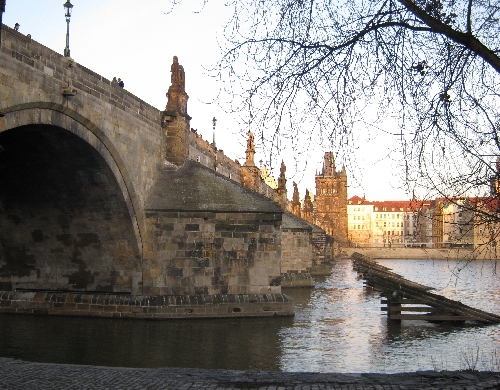
I awoke this Easter Monday morning, after a tiring but exhilarating Easter Day, planning to write a blog post all about our worship yesterday in Prague and Brno. I still plan to write that post, but in the meantime, I hope my readers will excuse this little rant in response to a prominent news item that was on the home page of the BBC News website this morning.
During Holy Week, the ‘Church Times’ published an interview with the British Prime Minister David Cameron, in which, amongst other things, he said that Britons should be “more confident about our status as a Christian country”. He then rightly added that saying this did not mean “doing down” other religions or “passing judgement” on those with no faith. The interview was widely reported, such as here on the BBC News website. Whilst I’m not normally in the habit of defending conservative politicians 🙂 , I have to say that on this point, I totally agree with David Cameron. I also believe that in his position as Prime Minister, he has every right to say what he said in that interview.
Today, one of the leading headlines that greeted me on my early morning visit to the BBC News website read, ‘David Cameron risks ‘alienation’, public figures claim’. According to a letter written to the ‘Daily Telegraph’ by over fifty ‘public figures’, David Cameron referring to the United Kingdom as a Christian country, ‘fosters alienation and division in our society’.
Firstly, I do wonder what makes someone a ‘public figure’. I think I have a fairly good knowledge of British life and culture yet I struggled to identify even ten of the signatories that I knew. And even if you are a ‘public figure’, what makes your opinion any more important or relevant than that of anyone else?
However, what did immediately get my attention and made me realise where the letter was coming from, was that the lead signatory was Professor Jim Al-Khalil, president of the British Humanist Association (BHA). Here I hope that long-standing readers of my blog, will forgive me for returning to a topic I previously wrote about two-and-a-half years ago.
According to the website of the BHA, they have ‘over 28,000 members and supporters’. Their website has said this for at least the past three years. Clearly their level of support hasn’t increased in that time, otherwise I’m sure they would have broadcast the fact. Notably, they do not differentiate between ‘members’ – those who have put their hands in their wallets and paid a fee – and ‘supporters’. What makes someone a ‘supporter’? A person who sent a friendly email over five years ago? Or someone who clicked ‘like’ on Facebook?
Back in August 2013, I wrote to the BHA, asking for a breakdown between paid-up members and ‘supporters’ and asking for their definition of a ‘supporter’. Whilst I got an out-of-working-hours acknowledgement of my email, I never got an answer to my questions. There is a clear reason why I got no reply. To reveal their actual membership numbers, showing that they are ridiculously small, would be embarrassing and would damage the credibility of the BHA, as it should. In my opinion, their lack of transparency borders on dishonesty.
The timing of the intervention of the BHA could not have been more apposite. On a normal Sunday, over three million people attend Church services in the UK – somewhere between five and six percent of the population. Yesterday being Easter Day, that number would have at least doubled if not tripled. Once the BHA has that level of support, then it has a right to be heard. Until it does, it remains an irrelevance and in no way justifies the column inches and air time, news organisations unfortunately give it.
The UK has a Christian heritage and culture and there is absolutely nothing wrong in saying so. Whilst I would like the numbers who actively attend Christian worship to be larger than they are, they are infinitely greater than the supporters of humanism and militant atheism. I rest my case!

